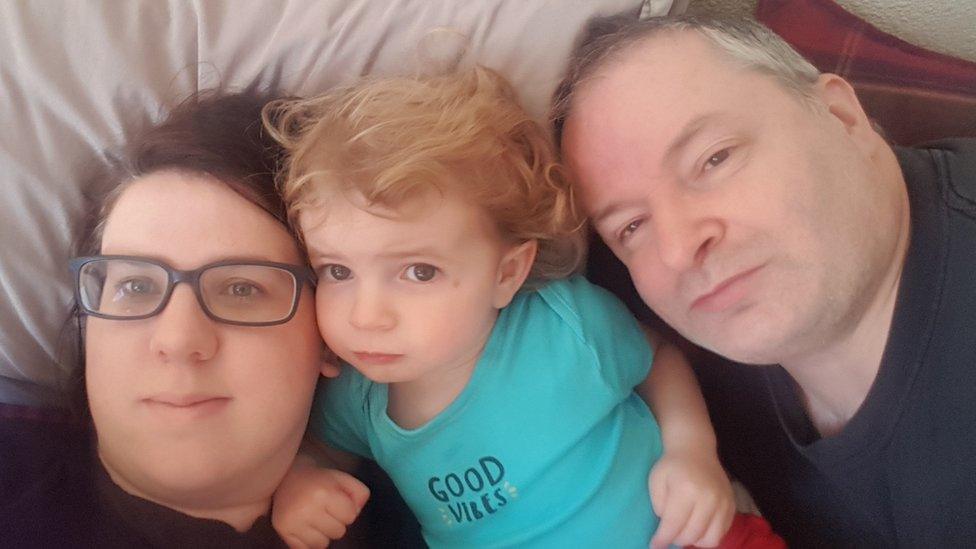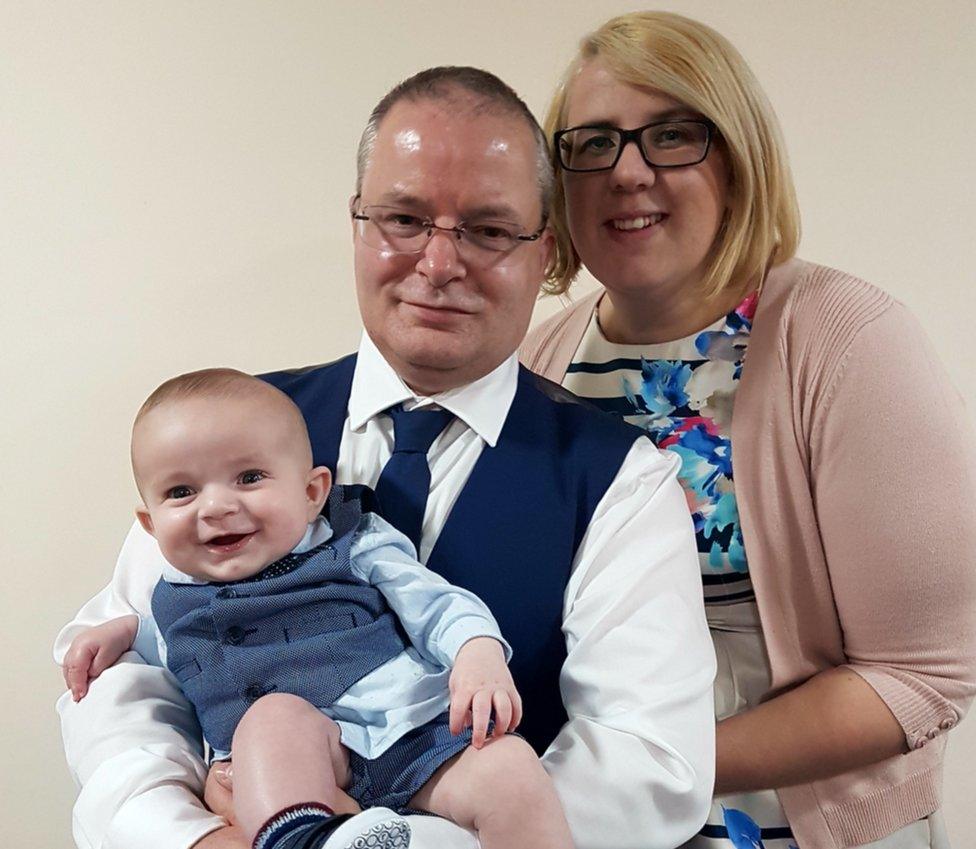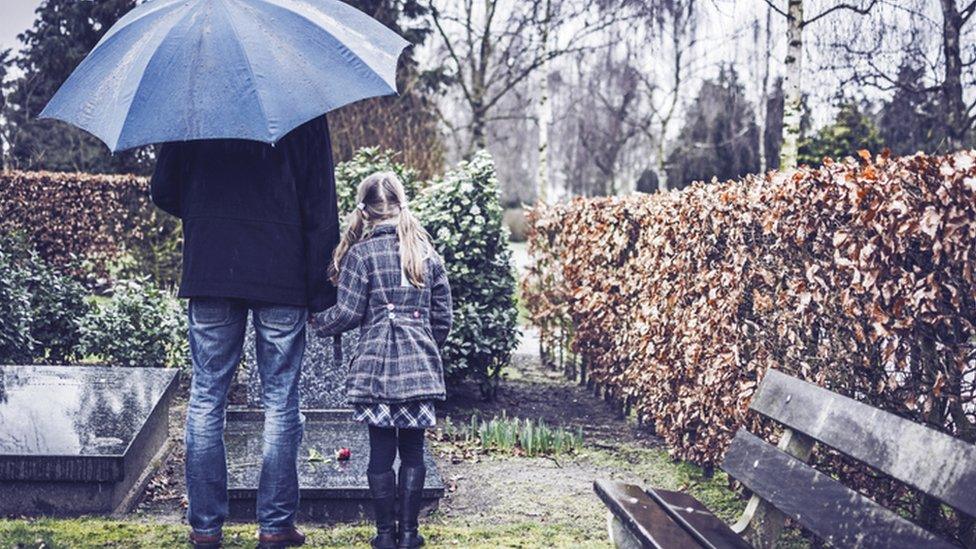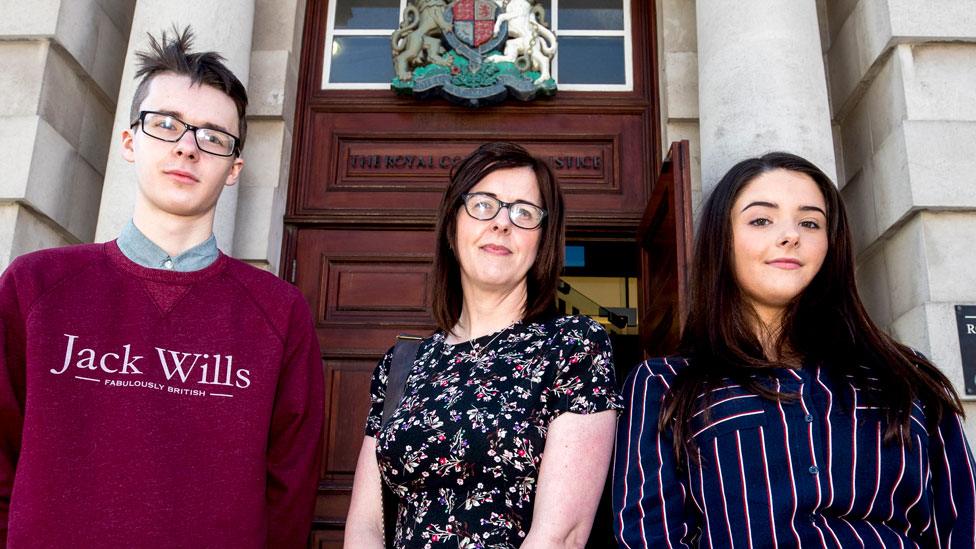Unmarried partners still missing bereavement payments
- Published

Laura is ineligible for support payments as she was not married to her partner of nine years, Nigel, when he died. They have a son, Noah, together
The government must act quickly to ensure unmarried parents can receive bereavement support payments, 18 groups have said in an open letter.
Means-tested payments of up to £10,000 are made to parents whose husband, wife or civil partner has died.
Last month, a landmark legal case found denying these to co-habiting partners was against human-rights law.
The government said losing a loved one was devastating and it was "carefully considering" the court judgments.
The prime minister has previously vowed to seek to "remedy" an "injustice".
Fall foul
Every year about 2,000 families with children lose out on the payments, according to analysis of Office for National Statistics data by the Childhood Bereavement Network charity, which is behind the open letter.
"We respectfully ask that this be done quickly, as another five families with children fall foul of the current criteria each day," the letter says.
Laura Rudd's partner, Nigel Glanville, died from a heart attack while out running in February.
They had been together nine years and had a two-year-old son, Noah.

Nigel - pictured with Laura and Noah - died while out running
But because they were not married, Ms Rudd does not qualify for the bereavement support payment.
"Many couples mistakenly believe they have the same legal and financial rights and protections as married couples," she told the BBC's Victoria Derbyshire programme.
"But when they are struck by tragedy, they are treated like second-class citizens."
'Painful process'
The couple had recently bought a house together and Ms Rudd now faces paying the mortgage alone while juggling childcare for her son.
She must also find about £3,000 to pay for Nigel's funeral, which she says she does not have.
She describes the current law as "heartless discrimination, adding to an already painful process" - and has begun a petition, external calling for change, which has received more than 90,000 signatures.

Laura said she had had to register Nigel as "single"
On the paperwork registering Nigel's death, Ms Rudd said she had been recorded as the "person organising a funeral", rather than his partner or the mother of his child.
"According to the law, I don't count," she said. "I even had to register Nigel as 'single'.
"It was a spit in the face for nearly a decade spent together."
In August 2018, the current system was declared incompatible with human rights legislation by the Supreme Court - after hearing the case of unmarried mother-of-four Siobhan McLaughlin.
However, the government has taken no action to amend the relevant legislation - which Ms McLaughlin told the BBC showed "complete disregard for the highest court in land".
She added: "The government should hang their heads in shame".
A Department for Work and Pensions spokesperson said: "Losing a loved one is devastating and we are carefully considering the court judgments on cohabiting couples with children."

Follow the BBC's Victoria Derbyshire programme on Facebook, external and Twitter, external - and see more of our stories here.
- Published7 February 2020

- Published30 August 2018
